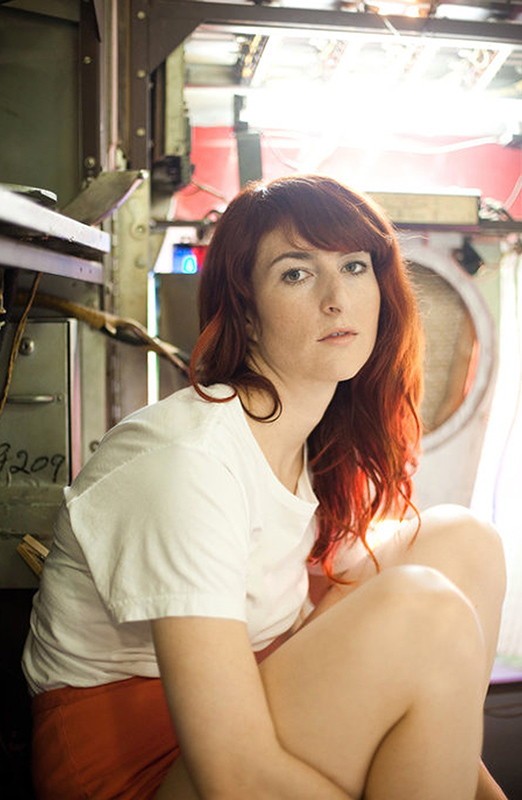This is better
Vancouver-based singer-songwriter Hannah Georgas returns with a self-titled sophomore effort
Hannah Georgas isn’t short on confidence.
It takes some guts, after all, to call your debut album This Is Good. It’s kind of like naming a baby with bullies in mind; critics can be cruel.
Thing is, 2010’s This Is Good wasn’t just good - it was a masterful, career-making pop gem that was showered with glowing press accolades, longlisted for the prestigious Polaris Music Prize and earned Georgas two Juno nods for Best New Artist and Songwriter of the Year.
While we’re reading into album names, the title of Georgas’ 2012 follow-up, Hannah Georgas, is similarly perfect. It’s an even more assured effort from the Vancouver-based singer/songwriter and, as Hannah puts it, “a re-introduction to where I’m at creatively and musically.”
Musically, Georgas, 28, was interested in exploring electronic synths, particularly analogue, pre-EDM keyboards.
Who better to help her realize her vision than producer Graham Walsh of Toronto’s Holy Fuck, one of the most revered acts in live-band electronica?
“I had heard wonderful things and he’s the sweetest person,” she says. “Whenever I’m in Toronto, Graham and his family are on the top on my list of people to see. It was fortunate we got along so well.”
Georgas was also looking to block out time for intensive writing, something that relentless touring in support of This Is Good hadn’t allowed.
“I wanted to grow with my writing and definitely do more in terms of my demoing process,” she says from the van en route to a gig in Edmonton, the second date in a North American headlining tour that stops in Winnipeg on Saturday, Jan. 26.
“I started playing around more on Garage Band and figuring things out for myself a bit more. I made an effort to write every single day.”
And so, every day from January 2011 until that summer, she wrote.
Some songs were confessional and deeply personal; Ode To Mom, for example, is about Hannah’s dad, who passed away a couple of years ago. Others, such as Shortie, are pure, cotton-candy pop escapism.
Through those writing sessions, Georgas learned to be less hard on herself, and that sometimes songs take time.
“I learned that it’s a process,” she says. “I used to write very quickly, and I’d be able to write a song in a day. With this, I’d sit down at my instrument and it was like, ‘This isn’t coming.’ When you write a song you love, you want to play it all the time because you’ve found something amazing. When that doesn’t happen, or when it doesn’t stick, it’s frustrating.”
It makes sense, then, that she’d come out on the other side with a confident album that exudes both maturity and wisdom beyond her years; Hannah owns her growth. And, as anyone who saw her open for Mother Mother at the Burton Cummings Theatre last month knows, she’s also exuding that bolstered confidence onstage - a point she’s previously attributed to spending four months on the road supporting Kathleen Edwards as both an opening act and a member of her backing band.
While she’s looking forward to supporting Hannah Georgas on her own steam, she’s already feeling the pull of those quiet moments out of the stage lights.
“You get so focused on all the other parts of putting out an album - touring it and promoting it. Sometimes I get frustrated and just want to get home and write,” she says with a laugh.
Published in Volume 67, Number 17 of The Uniter (January 23, 2013)








